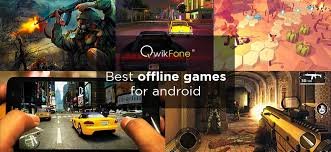The best android games
The world of gaming has evolved from simple 8-bit graphics and arcade cabinets to sprawling digital universes, competitive eSports, and immersive virtual realities. What was once considered a niche hobby is now a global industry worth hundreds of billions of dollars, influencing culture, technology, and even education. Gaming today is more than just entertainment—it’s a lifestyle and a rapidly expanding global community.
A Brief History of Gaming
The roots of gaming trace back to the 1970s and 80s with classics like Pong, Space Invaders, and Pac-Man. These arcade games sparked a global fascination, eventually giving rise to home consoles like the Atari 2600 and the Nintendo Entertainment System. As technology advanced, so did storytelling, graphics, and gameplay complexity, paving the way for the rich, interactive experiences we enjoy today.

The Rise of Online and Multiplayer Gaming
One of the most transformative moments in gaming history was the rise of online multiplayer games. Titles like World of Warcraft, Call of Duty, and Fortnite created virtual spaces where players could interact, compete, and cooperate across the globe. Online gaming broke physical barriers, allowing communities to form based on shared interests rather than geography.
eSports and Professional Gaming
Gaming has grown into a professional sport, commonly referred to as eSports. Professional players now compete in tournaments with million-dollar prize pools and millions of viewers. Games like League of Legends, Dota 2, and Valorant have become cornerstones of this competitive ecosystem. The growth of live-streaming platforms like Twitch has further propelled gaming into mainstream media.

The Role of Technology
Technological innovation has played a critical role in shaping the gaming experience. From high-definition graphics and realistic physics engines to artificial intelligence and cloud gaming, advancements have made games more immersive than ever. Virtual reality (VR) and augmented reality (AR) are pushing boundaries even further, offering fully interactive environments that were once only possible in science fiction.
Gaming as a Social Platform
Gaming today is also a social hub. Players use games to connect with friends, make new ones, and even participate in virtual events like concerts or movie screenings. Platforms like Roblox and Minecraft are especially popular among younger audiences for their creativity and social interactivity. Gaming has become a new form of digital communication and self-expression.

The Cultural Impact of Gaming
Video games now influence fashion, music, and even politics. Characters like Mario, Lara Croft, and Master Chief have become pop culture icons. Story-driven games such as The Last of Us and Red Dead Redemption 2 have demonstrated that video games can convey powerful, emotional narratives comparable to film and literature. The gaming community has also become a platform for discussing real-world issues and fostering activism.

The Business Side of Gaming
The gaming industry is one of the most lucrative sectors in entertainment. With revenue surpassing that of movies and music combined, companies invest heavily in game development, marketing, and distribution. Mobile gaming, in particular, has exploded in recent years, making games accessible to people of all ages and demographics.
Challenges in the Gaming World
Despite its success, the gaming world faces several challenges. Issues such as gaming addiction, toxic online behavior, and the crunch culture in game development are under growing scrutiny. Developers and communities alike are working to create more inclusive, safe, and balanced environments for players and workers in the industry.

Conclusion
The world of gaming is constantly evolving, driven by creativity, technology, and community. It’s no longer just about playing a game; it’s about experiencing a shared culture, telling stories, and pushing the limits of what’s possible through digital interaction. As gaming continues to grow, it promises to play an even bigger role in shaping the future of entertainment and communication.